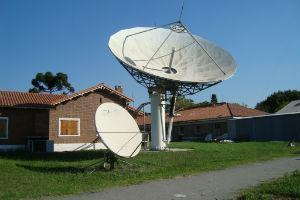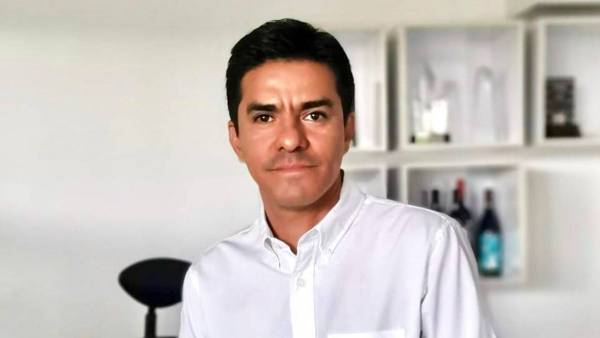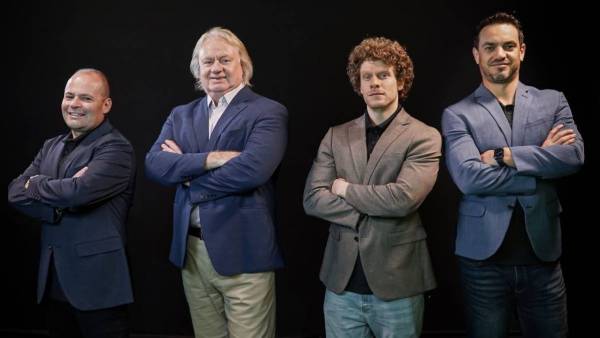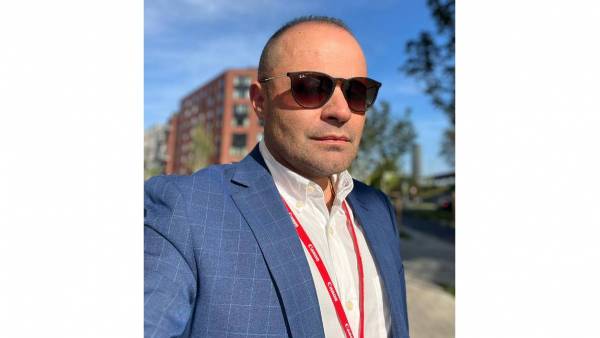 Unida is community television in Colombia to face the attempts to end it, according to its spokesmen due to the new regulation for the sector issued by the ANTV.
Unida is community television in Colombia to face the attempts to end it, according to its spokesmen due to the new regulation for the sector issued by the ANTV.
Richard Santa
Last May, the National Television Authority of Colombia, ANTV, issued Resolición 0433, through which it established a new regulation for community television operating in the country, after a series of regional forums held by the entity in six cities during 2012 in order to update the regulations to the new realities, such as the FTA with the United States.
According to the official communication of the regulatory body, the new law strengthens the functioning of these operators. He pointed out at the time some new benefits, such as participating in calls for financial support, investing in own content the total income from advertising and co-producing the realization of programs or the transmission of events.
In addition, it seeks to improve the service, protect the industry and copyright, combat piracy and promote the production of content that contributes to the sense of belonging and responds to the requirements of the communities, with educational, cultural or public interest themes.
Other aspects highlighted by the ANTV on resolution 0433 are the optimization of the procedures for the assignment and extension of licenses; provides the power for community channels to have up to nine hours a week of their own content and have two hours a day to broadcast independent productions made by community members.
For the compensation payments for the operation of the service, it determined that these will depend on the number of associates and the level of NBI (unmet basic needs) of the municipality in which the service is provided. According to the ANTV, the new compensation methodology favors communities in more than 300 municipalities that do not have free-to-air television reception, since they will pay the lowest values.
The new regulation also contemplates a period of 10 years for the validity of the license to provide the service, extendable, and a limit of six thousand associates in each organized community. According to the entity's data, currently 99% of community operators have less than 5,000 associates and most of the current licenses for community television are concentrated in Cundinamarca (153), Antioquia (113), Santander (67) and Boyacá (53).
In terms of programming, community TV will now be able to add thematic satellite channels of national production, in addition to the transmission of seven coded channels and free or incidental channels, with the prior authorization of copyright in each case.
Co-productions may be made between channels of the same department, for the transmission of sporting or cultural events or the realization of programs for children, ethnic or disabled audiences.
To promote their own production, they will be able to access the resources of the Fund for the Development of Television and Content (Fontv), through calls that will be made by the regulatory entity. These will begin during the second half of 2013.
Total rejection
The new regulation achieved something that no one had been able to, unite all community TV, but in a unanimous rejection of what they have classified as an unacceptable, illegal outrage and that is totally opposite to what was proposed in the forums of 2012 and to the observations made in the consultation prior to the issuance of the law.
The National Council of Community Television pointed out that the limit of associates is an arbitrariness that limits access to the service of the poorest and has no legal, philosophical or political basis. He recalled that in the previous regulation, approved in 2006, the figure was established at 15,000 associates and maintain that the reduction has to do with the approval of the FTA with the United States.
He added that with the validity of the licenses of 10 years counted from the granting of the same, the ANTV intends to make the application of the same retroactive and leave literally without license or authorization those that are in force due to the fact of not fulfilling admissible conditions for new operators but opprobrious for those who acquired their licenses under the protection of rules that did not establish that limit.
They also argue that compliance insurance policies are non-compliant for them, since insurers are not currently issuing them, nor have they ever issued policies of this type and with costs that would be very onerous for non-profit community television.
For its part, the Antioquia association ComuTV, headed by its president William Galindo, described as unacceptable the terms of the new regulations. He maintained that the obligation in the head of the legal representative to sign annex number 1, where he assures that all the associates of the community he represents know and accept the terms of resolution 0433 would be committing a crime. Before that, an assembly would have to be held with the assistance of 100% of the associates, who must approve the terms of the resolution.
All united
The different associations that unionize community television in Colombia, decided to create a United National Front for their defense and to lead their protests and legal actions against the new regulation, will channel the efforts through the National Council of Community Television, headed by Fernando Rivera.
At its last meeting, the board of directors of ComuTV agreed to make an economic contribution to that organization for the payment of fees and costs of the process, as well as the accompaniment by allied lawyers.
Among other measures that the members of the community TV will take, are the dissemination of what they consider the damages that the new regulation brings through the local channels to the associates of each system. In addition, participate in marches and demonstrations that are scheduled at the national level. They also ask for the commitment of all community TV not to sign ANNEX 1 for now.
Through this action plan, Community TV seeks to repeal resolution 0433 and reopen the discussion on the future of community television, taking into account the discussions held in the 2012 forums.
If it is not achieved that it is repealed, they will request the ANTV to socialize in each of the regions resolution 0433 of 2013, including a workshop on the application of compensation formulas, production hours and the different categories of municipalities that have to do with policies, payments, etc.
On the deadline for compliance with a new regulation, they will ask that it not be short. They ask that the time of application of the whole of the new resolution should not be less than one year. To support all the petitions, they will make a claim of rights addressed to the ANTV, sent by the largest number of partners of the community TV systems of Colombia, as well as by each member of each system.
In conclusion, community TV in Colombia considers that the new regulation does not encourage or promote community television and that it even violates the constitutional right of access to the media.
Note: This discussion will be analyzed in depth during the main panel of the Pay and Community TV room that will be held within the framework of TecnoTelevisión on July 31.

























Leave your comment